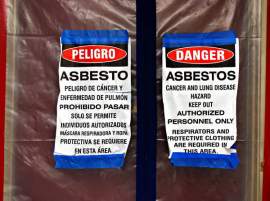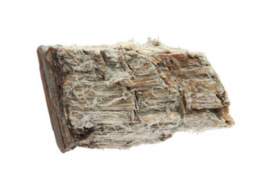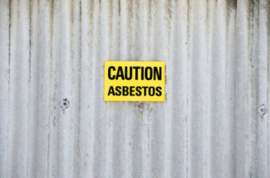
Professional Asbestos Removal

Must Read
What is an asbestos removal professional?
Asbestos removal professionals are contactors certified by the EPA or state authority to carry out asbestos abatement, working on the advice of an asbestos inspector. Asbestos removal is a separate licensing procedure from typical contracting work and requires the professional to demonstrate knowledge on the dangers of asbestos as well as proper abatement procedure. Asbestos removal professionals include contractors, management planners, inspectors and even transport workers, as all play an essential role in safe abatement. Additionally, workers will generally need some sort of certification if the state does not provide for the asbestos removal professional to supervise workers at the construction site.
Who are included in as asbestos removal professionals?
Though this varies by state, asbestos removal professionals may include:
- Contractors
- Supervisors
- Consultants
- Management Planners
- Inspectors
- Air Monitors
- Laboratories
- Transporters
- Training Providers
Management planners serve as inspectors that draw up plans for asbestos abatement. This also enables them to supervise the abatement procedure and suggest abatement techniques. Less intensive functions of other asbestos removal professionals include testing air quality in structures, testing materials for the presences of asbestos and risk analysis for owners of occupied structures that may contain asbestos.
Air quality testing is vital for asbestos removal professionals as low readings will signify successful abatement and eliminate the need for drastic measures. Air quality will be tested aster demolitions too, to ensure the area is safe.
How does one become an asbestos removal professional?
Many states will require the applicant first be a licensed contractor in the state. Asbestos laws are based on federal mandates, so you will have a reasonable estimation as to what will be expected of you during testing in order to be certified. Almost all states provide a training course accredited by the state asbestos abatement authority. Other states will have reciprocity licensing agreements with other states, or turn over that responsibility to the EPA. These courses may be standard for all prospective professionals or tailored depending on the certification. Generalized course will cover asbestos safety, the effect of asbestos on the body and asbestos abatement procedure. Most examination’s will have a practical examination as well, where the applicant but observe proper safety procedure and proper asbestos abatement procedure.
Asbestos removal in the home
After an inspector verifies the presence of asbestos, either from sight or testing, it is advisable to remove any friable material. Non-friable material removal will be at the discretion of the contractor, inspector or other asbestos removal professional as they see fit. If the project is a demolition, then these items probably need to be removed prior to knocking down the structure.
Friable asbestos will be removed by the professional and there are a number of ways to do so. Friable asbestos breaks apart with ease and will constantly release fibers until sealed or removed. Asbestos removal professionals are trained to do this appropriately, even if the homeowner has the options to do so by state law.
Non-friable material, which includes tiles, flooring and concrete fixtures can also be removed but the asbestos removal professional will make an informed decision on this. Some renovations may disturb the material and certain classifications of non-friable material will crumble and become friable.
Where to find an asbestos removal professional
Most states will have listings of professional asbestos removal experts that are certified to inspect and identify asbestos containing materials. The Asbestos Control Program in your state will have this information on their website. Alternatively, you may call them directly for more information.
Why do I need an asbestos removal professional?
Small residences are not covered by federal law, but benefit from a professional performing asbestos abatement. This is in no small part due to the fact that the potential for contamination with amateur asbestos abatement is very high. Only a professional will know the proper procedure and follow it to ensure that no secondary exposure occurs. For structures covered by federal and state law, illegal asbestos abatement will be punishable with fines and even imprisonment if the abatement endangers workers, occupants and others in the area.
Asbestos removal professionals will know how to wet asbestos before abatement and will also know how to seal asbestos for disposal and label it in accordance with state laws. Asbestos is wet in the entire process as waterlogged asbestos will not have fibers that become airborne,
What other services do asbestos removal professionals provide?
Asbestos removal contractors often double as conventional contractors that will remove asbestos from structures and then replace it with safe materials. This is useful for homeowners as they will probably save on the costs of hiring two contractors to deal with this issue.
Asbestos removal professionals will also maintain affiliations and relationships with asbestos disposal companies. Strict laws govern the disposal of asbestos materials and having a professional facilitate the removal and sealing of the asbestos and then following all laws to have it disposed at the appropriate site, is a valuable service. Even homeowners exempt from typical asbestos abatement laws must follow proper disposal procedure.
Encapsulation and enclosure are alternatives to asbestos removal and professionals will be able to provide these services under most situations. In these instances, the asbestos removal professional will seal the friable asbestos, rendering it safe. As long as the seal is intact, the material need not be removed and the asbestos fibers do not become airborne.


















